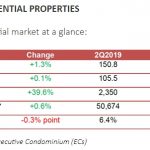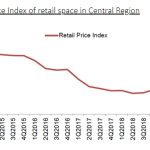You can borrow money for your business growth even if you have poor credit report if you know how to keep your personal and corporate identities separate.
By: Phoenix Lee/
Acquiring a business loan is not easy for businesses with poor credit report. Getting approved for a business loan from a bank with a bad credit score can be extremely difficult. Unfortunately for young businesses bad credit is a common plight.
Many entrepreneurs quickly learn that their initial business loan was helpful in establishing and starting up – but expansion, maintenance or even growth requires additional funding which may not always be available. New small businesses tend to damage their own chances for secondary financing during slow beginnings when fixed loan repayments are not always made on time.
Other factors such as personal credit may also damage ones ability to be approved for a business loan as most lenders (banks and other financial institutions) look at a combination of both personal and business credit. Many business owners turn to private lenders, moneylenders, or even family and friends. Acquiring the necessary funds through these private channels is usually not realistic as funding amounts are typically limited.
Just as your personal credit report determines whether you qualify for a personal loan, it also affects whether you can get a business loan. The three main things lenders look for on your credit report are:
- Late payments
- Missed payments
- Bankruptcies

These problems can take seven to ten years to cycle off of a credit report. As long as there’s no pattern, the occasional late payment is no big deal in the eyes of most lenders — we’ve all mailed cheques a day or two late.
But missed payments and bankruptcies are a different story. These black marks on your credit report must be explained. Circumstances leading to your bankruptcy are best explained in a letter accompanying your loan request. Don’t just explain what happened. Let your prospective lender know what steps you’ve taken to assure it won’t happen again. Typically, banks won’t consider conventional loans to applicants with a bankruptcy in the past three years.
https://www.icompareloan.com/resources/urgent-loans/
That doesn’t necessarily mean you shouldn’t try. Banks are your best financing source, but there are alternatives, including revolving-loan-fund programs and micro-loan programs available through several financial institutions. Some of these programs, however, require you to have been turned down by a bank first before you can apply.
If you are starting a business and have a poor credit report, here are a few tips that should help:
Table of Contents
1. Forget big banks as sources of funding.
In the past, obtaining bank financing was based on the four Cs of credit: credit history, cash flows, collateral and character. Today, this is no longer true for most large, well-known financial institutions. They care little about three of the four Cs-and instead tend to focus purely on credit history in making lending decisions to small-business applicants.
This is because consolidation in the banking industry has driven banks to automate their credit decision processes and minimise the labor involved in getting to know credit applicants face to face. If you have a great business idea but poor credit report, you will not get any money from banks.
Even if you have a great business idea, a strong character and relevant work experience, you are not likely to get any money from big banks if you have poor credit report.
There is one notable exception to this rule: home equity loans. If you are willing to secure your business loan with personal equity in your home, you will have plenty of options even if you have poor credit score. But be very careful about relying on home equity loans too early in the life cycle of your business. Cash flows for startups are notoriously difficult to forecast.
https://www.icompareloan.com/resources/business-loan-applications/
2. Differentiate your personal credit from your business credit.
While large banks focus on your personal credit score, smaller lenders may focus on a combination of your personal credit score, business credit score and other factors associated with the viability of your business.
Your personal credit score is determined by several factors, including the outstanding debt balance on personal credit cards, the number of open lines of credit accounts, bill payment history and late payment history. Your business credit score is determined by similar factors but is linked to the tax ID for your business, not your personal identity number. This important difference can help you get your business off the ground.
If your personal credit score is damaged, you should seriously consider getting a separate tax ID number for your business. In addition to getting a tax ID number, it is important to ensure that your business is distinct from your personal identity. While these administrative chores might seem minor, they are critical in distinguishing you from your business.
3. Build your business’s credit score.
Once you have a tax ID number and a legal identity for your business, you can start building your business’s credit and establishing a means to qualify for trade and credit lines from suppliers and sources of capital. If you do not have strong personal credit, you should pay special attention to ensuring that you build a good business credit history.
Your credit report is a record of your credit payment history compiled from different credit providers. As most lenders will check your credit file to assess your credit worthiness prior to making a decision, a good credit repayment history will make it easier for you to obtain credit and to qualify for loans.
By reviewing your credit report regularly, it allows you to be aware of any information that is uploaded on your credit file. The other advantage of monitoring your credit file is that it protects against possible fraudulent use of your personal details to obtain credit.






